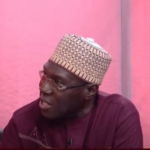
There are growing concerns over the possibility of armed conflict between Horn of Africa neighbours, Ethiopia and Eritrea, as hostile rhetoric has ratcheted up in recent weeks.
Landlocked Ethiopia’s calls for access to the Red Sea through Eritrea has triggered a fierce war of words.
Ethiopian Prime Minister Abiy Ahmed first openly declared in 2023 that his nation’s access to the sea was an existential matter, comments that Eritrea dismissed.
Relations between the two countries have frequently been strained. After a decades-long battle for independence, Eritrea, which has a 1,350km (840-mile) Red Sea coastline, officially seceded from Ethiopia in 1993, leaving it landlocked.
Five years later, a border war erupted in which more than 100,000 people died.
What has Ethiopia said?
Abiy and army chief Field Marshal Birhanu Jula have openly claimed ownership of Eritrea’s southern port of Assab – about 60km from the border – and hinted at the desire to take it by force.
On 1 September, Abiy said Ethiopia’s “mistake” of losing access to the Red Sea as a result of Eritrea secession would be “corrected tomorrow”.
Ethiopia’s ambassador to Kenya, retired Gen Bacha Debele, said that Assab was “Ethiopia’s wealth” and would be returned “by force”.
“The question now is not whether Assab is ours or not, but how do we get it back?” Ambassador Bacha told the pro-government YouTube Channel Addis Paradigm on 3 November.
On 21 September, army chief Field Marshal Birhanu Jula told soldiers that they would fight a country that had denied Ethiopia access to the sea, a reference to Eritrea.
“Our population is now 130 million and will grow to 200 million in the next 25 years. How come the interests of two million people [referring to Eritrea] override those of 200 million people?” Birhanu asked on 25 October.
“We will strengthen our defence forces, speed up our development and secure a sea outlet.”
In late August, the head of the defence forces’ military diplomacy, Maj Gen Teshome Gemechu, said Ethiopia’s ownership of Assab port “has become our survival interest worth paying any price for”.
The head of the army’s engineering department, Gen Desta Abchie, told a meeting of senior officer that the army was “toiling day in and day out” towards securing access to the Red Sea.
How has Eritrea responded?
In the face of persistent threats from Ethiopia, Eritrea’s reaction has been limited to short statements on X from Information Minister Yemane Gebremeskel.
He has rejected Ethiopia’s push for access to the Red Sea describing it as “dangerous” and a “toxic agenda” of “irredentism” – a policy of claiming back lost territory.
The information ministry warned on 16 September that attempts to legitimise “flagrant aggression” would have serious consequences for Ethiopia and its neighbours and is a “redline that should not be crossed”.
In a rare reaction to the threats from Ethiopia, the Eritrean army warned in a report on 13 November that Ethiopian leaders should refrain from leading the Ethiopian people into a quagmire.
“The fate of anyone crossing the red line is plunging into an abyss from which they will never have a second chance to learn,” the army said.
What are the armies doing on the ground?
There have been no reports of major military movements in the border areas between the two countries.
However, in Ethiopia, state television has shown graduation ceremonies of thousands of cadets at various military training camps.
The head of the human resources department of the defence force, Lt Gen Hachalu Sheleme, recently said in an interview that the army was in a “reliable position” as “tens of thousands of youths” were joining it, which he said was “a message to our enemies”.
On 20 September, Ethiopia’s President Taye Atske Selassie promoted 66 senior army officers at Abiy’s recommendation. Taye said on the occasion that Ethiopia’s military preparedness was “elaborate”.
The army has also been parading newly acquired weapons, including artillery, tanks and armoured vehicles on national days.
There have been no comments or military parades by the Eritrean army in public so far.
However, Eritrea has a mandatory national service in which thousands of young men and women receive military training every year.
Pro-opposition Asena TV reported on 15 October that the government had imposed movement restrictions on troops, ordering them to remain within their respective positions.
What are the media saying in Ethiopia?
State media outlets in Ethiopia have amplified the government’s narrative that the country “lost” its Red Sea ports “unjustly” and it was time to reclaim them.
State ETV news bulletins are preceded by commentaries on the “unjust loss” of access to the Red Sea and ways to regain it.
ETV has also shown footage of demonstrators and graduating soldiers displaying placards reading “from the dam to the sea” (referring to the Grand Ethiopian Renaissance Dam on the Nile) and “Assab is ours” or “Assab is Ethiopia’s”.
Local media say the government has mobilised online actors to disseminate its narrative on the issue.
“The Ethiopian government is using a digital ‘army of 60,000’ individuals to defend it against criticism and spread its messages,” US-based Ethiopian Media services reported on 30 December.
What are the media saying in Eritrea?
Eritrea’s state media, mainly television, have been issuing editorials and commentaries accusing Ethiopia of attempts to “deceive the world by revisiting issues that were settled decades ago”.
In an editorial commentary on 11 October, the TV accused the Ethiopian government of attempts to incite a conflict between the two countries by “reviving an issue legally settled once and for all”.
The information ministry’s editorial board said in a commentary on 1 November that Eritrea could not be blamed for Ethiopia’s challenges.
Ethiopia’s threat to seize Assab appears to have made some foreign-based Eritrean media outlets that are usually critical of the government change their tune.
One such outlet, the UK-based Asena TV, has been warning its viewers and Eritrean dissidents that they should put their political differences aside and defend their country.
The Paris-based pro-opposition Radio Erena condemned in March what it called Ethiopia’s provocative statements.
What are the roots of the tension between Ethiopia and Eritrea?
For more than half a century from 1890, Eritrea was governed by Italian colonisers.
After Italy’s defeat in the Second World War, it was then administered by the British military before becoming a federated part of Ethiopia.
But in 1962 Emperor Haile Selassie I cancelled this arrangement and Eritrea became fully incorporated into Ethiopia.
A three-decade long civil war followed, ending with Ethiopia’s defeat in 1991. Independence was then approved by Eritreans in a referendum in 1993.
For a few years in the 1990s there were good relations between the governments in Addis Ababa and Asmara, but they fell out over the exact location of their common border, leading to war in 1998.
Though this ended in a peace deal in 2000, it was never fully implemented, and the two nations remained at loggerheads.
This ended in 2018, when Abiy made overtures to Eritrean President Isaias Afwerki. The two signed a declaration that the war was over – a move that earned Abiy the Nobel Peace Prize.
The two governments were then allies in the Ethiopia’s 2020-2022 civil war in Tigray.
But relations have since broken down again.
- President Commissions 36.5 Million Dollars Hospital In The Tain District
- You Will Not Go Free For Killing An Hard Working MP – Akufo-Addo To MP’s Killer
- I Will Lead You To Victory – Ato Forson Assures NDC Supporters
Visit Our Social Media for More




